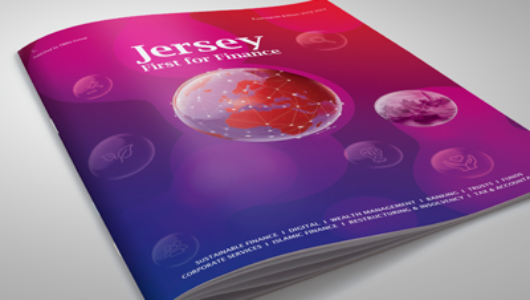Fintech infrastructure is not simply about money: it is about data and the secure and private processing and storage of data. Yes, the financial sector might be in the lead with its demands but most other sectors have similar needs and it is very interesting to see how the core fintech technologies and associated skills have begun to support other goals on our green and pleasant Island, including sustainability.
INTERNET OF THINGS (IOT)
One interesting nexus is the Internet of Things, or IoT. A generation on from the famous ‘on the Internet nobody knows you’re a dog’ cartoon that became a staple of management consultants’ presentations ever after, the situation is now far worse. Never mind no-one knowing whether you are a dog, no-one knows whether you are a toaster. Or a toaster pretending to be a dog. Or agents of a foreign power pretending to be a toaster pretending to be a dog that is intent on bringing down our online economy. If the IoT is going to be a platform for embedded financial services, then it will need a serious security makeover.
We have already seen how adding mass market, inexpensive and insecure devices to a global network is taking us into uncharted territory when it comes to risk. I recall that, following the last massive Internet outage caused by a ‘botnet’, a number of commentators remarked how odd it is that a network designed to withstand nuclear war could be disrupted so badly by toasters, nanny cams and video recorders. That also seems a fair and rather damming point to make about the nature of that infrastructure. It is time to make security part of the proposition.
Anyone can connect their kettle, car or children to the Internet. It is also tempting to do it just because it can be done. But keeping them secure? That is another and altogether more difficult problem. Suppose it turns out that my smart toilet – these do exist by the way and I have photographic evidence – has been shipped from Korea with an old version of software that the hackers can easily exploit. Now my toilet is going to need patching and then upgrading. Yet supposing the facilities to patch and upgrade my toilet do exist (‘do not flush – upgrade in progress – download complete in 22 minutes’), how will the manufacturers persuade me to do this? What if the manufacturers have gone out of business? What if the upgrade is itself a trick designed to subvert my toilet for the amusement or profit of Eastern European hackers? In my opinion, leaving it up to consumers will not work, so selling toasters that can be hacked ought to become as unthinkable as selling cars without seatbelts.
It is not only financial services at stake. The use of IoT devices for the monitoring and control of everything from air quality levels to the milking of cows is transformational and as these applications become both more central to our strategic direction and more directly embedded with services ranging from insurance to small business finance to payments, so their security must be assured.
Here is where fintech can make a difference. If we have a vision of luggage that can sort out least-cost routing and lightbulbs that can trade energy derivatives and cars that can buy their own insurance and cows that can tell us when they need to be milked, then we are going to have to bring the new technologies, digital identity, cryptography, decentralised finance and others to the IoT world.
Jersey has long been a pioneer in this world. Last year, Jersey Telecom sold a majority stake in its very successful IoT division to private equity investor Perwyn for some £200 million, a deal that will keep the Island at the forefront of developments in this exciting field.
TRUST US
We can do this. Jersey can be both a test bed and an exemplar of what can be achieved by measuring and monitoring to the good of all but to achieve this we must tackle another related problem: What should be done with all the data that is gathered through the connected secure internet of people and the secure internet of things? After all, there is no point collecting all that data unless it is going to be put to use. Yet the tension between privacy and exploitation is real: we need to respect the privacy of individuals and organisations while using their data for a greater good.
We (society) do not want data locked up in hoards but nor do we want personal data flowing sprayed across the internet.
What we need is to develop new data holding and sharing structures that can provide the facts about data that are needed to make decisions without disclosing the data itself. How can we do this while protecting privacy? This is the difference between providing a date of birth and providing proof that you are over 18 or 21 or whatever to get into a bar or providing proof that a company’s assets exceed its liabilities without disclosing what any of those assets or liabilities actually are.
This is again where new technology is opening new paths and where, as noted in a recent Harvard Business Review, initiatives around federated learning and trust networks make it possible to acquire insight from data without acquiring or transferring the data itself.
Here again, Jersey is pushing forward and the work already underway to take our deep expertise in trusts in new directions is already showing promise. The idea here is to create data trusts. These trusts and their ecosystem of data stewards and guardians would look after the data or data rights of groups of individuals with a legal duty to act in the interest of the data subjects or their representatives.
Way back in 2017, the UK government first proposed them as a way to make larger data sets available for training artificial intelligence and a European Commission proposal in early 2020 floated data trusts as a way to make more data available for research and innovation. Also, in July 2020, India’s government came out with a plan that prominently featured them as a mechanism to give communities greater control over their data.
An open data-sharing ecosystem will increase productivity and therefore economic wellbeing and data trusts could be the key to unlocking this. Properly managed data sharing will enable a greater degree of entry and competition, driving more innovations. Who knows what the data obtained from – to choose an obvious example – traffic monitoring might be used for? I am very much of the ‘if we build it they will come’ (or, more accurately, the ‘if we provide access to privacyenhanced data sets they will increase net welfare’) school of thought.
In this way enormous commercial value could be unlocked and as the leading international trust centre, Jersey is uniquely placed to pioneer data trust services. The first Jersey data trust is about to be established to collect and steward local cyclist journey data using IoT-enabled bike lights with the aim of sharing insights with the local community to improve cycling conditions to encourage more active travel and as a pilot trial of data trust products and services and this will pave the way to a whole new sector on the Island.
FINTECH FOR JERSEY
The work going on to make Jersey a great place for fintech innovation is creating an environment to support much wider strategic goals. If we want more sustainable industries then we can bring together our advanced thinking about IoT to measure and monitor, data trusts to analyse and act, embedded finance to create new services and perhaps whole new subsectors in the finance industry.

